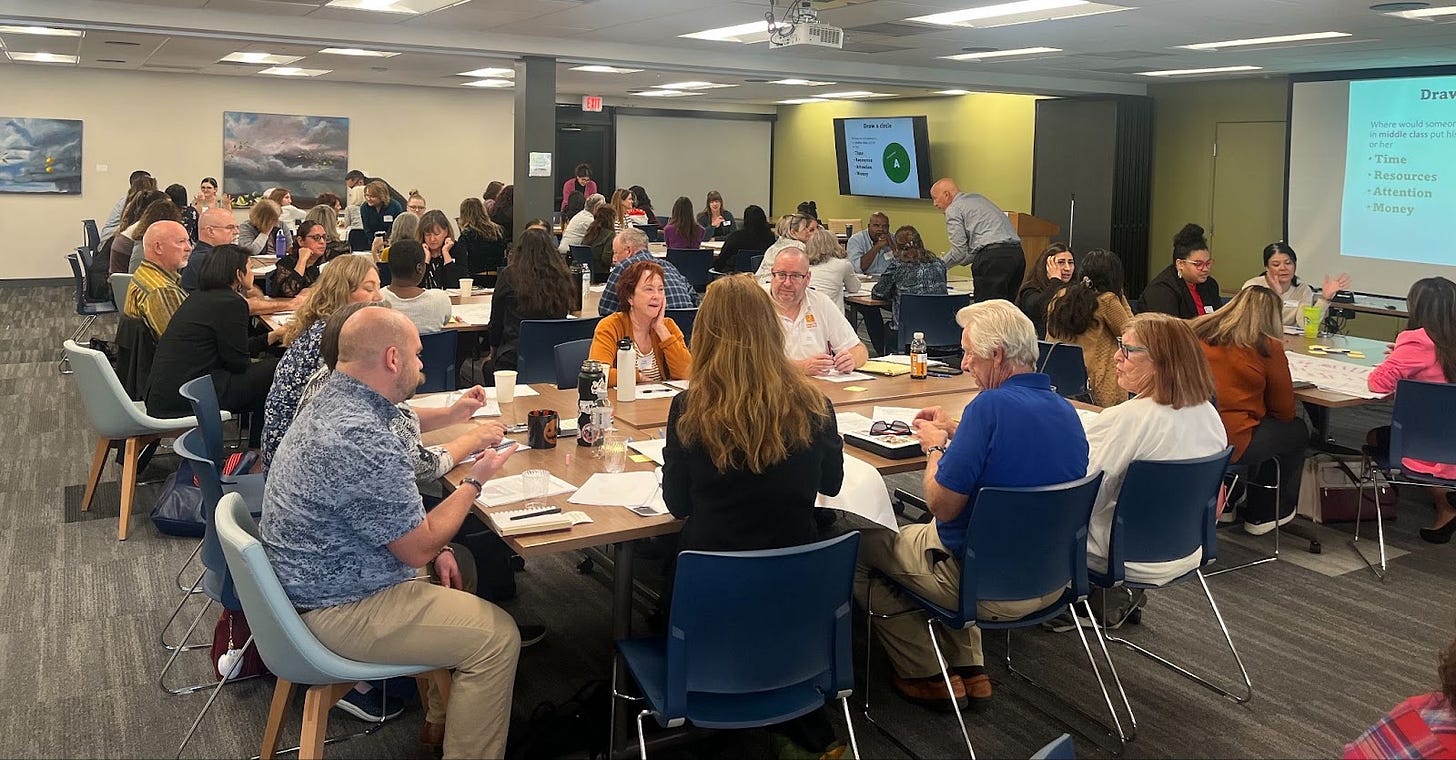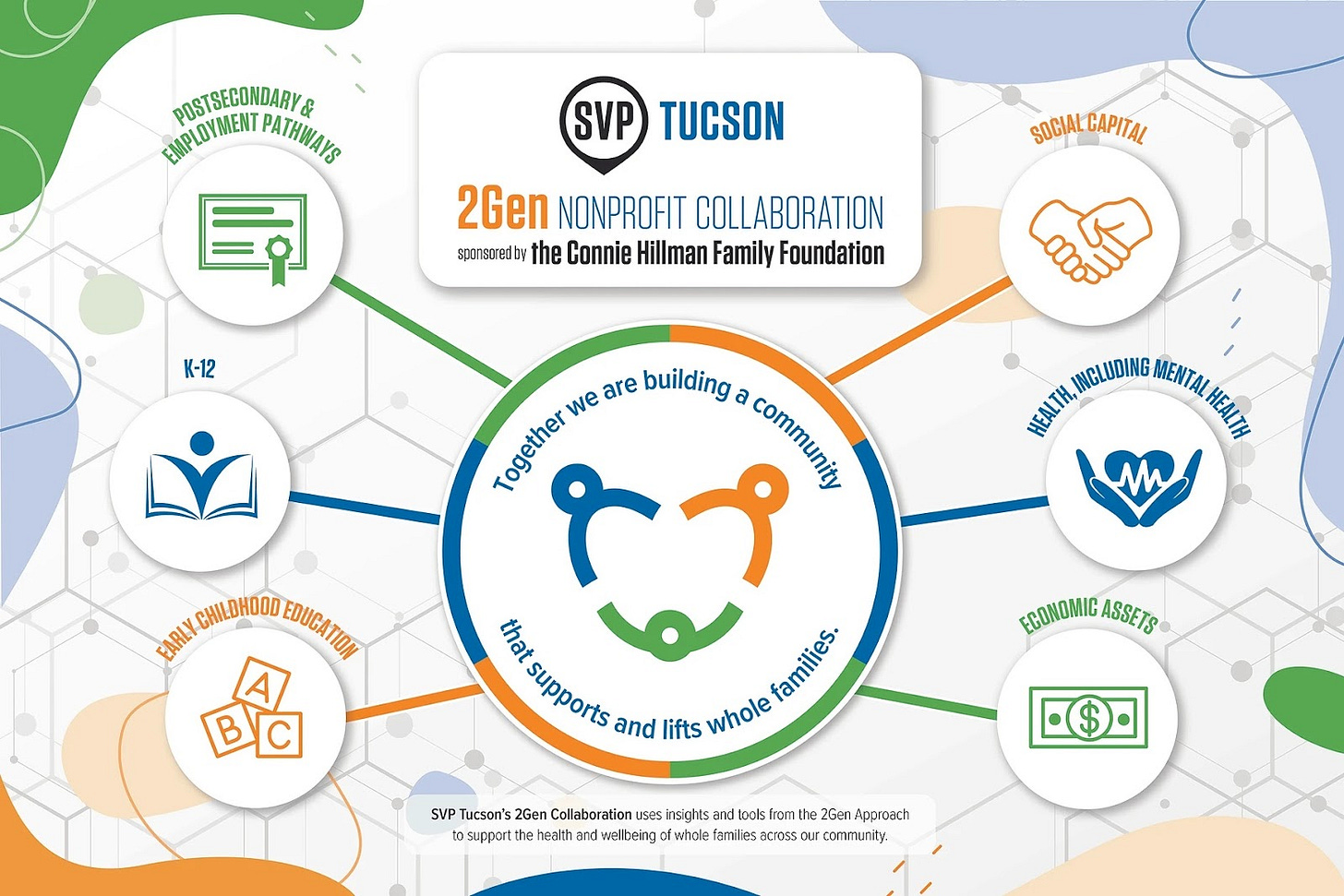The Daily Agenda: Playing chess in a dodgeball game
Tucson’s poverty is the result of choices we made … So let’s make different choices … Tucsonan Blake Masters runs for Congress in Maricopa County.
A lot of Tucsonans live in poverty. Everybody knows it and nobody likes it.
One out of seven Tucsonans lives in poverty, meaning the people experiencing it are our friends, neighbors and co-workers. They’re also the students attending our schools, with 20% of young people in Tucson experiencing poverty.
And while plenty of people want to help, it’s hard to try to solve a problem without understanding the history behind it. It’s one of those problems that is so complicated that it can feel like an insurmountable task to even find a place to start fixing it.
That’s why a handful of local groups have launched a collaborative effort to educate the community about the systems that contribute to poverty and potential tools to create change.
Earlier this week, roughly 100 people turned out for the three-hour Understanding Poverty Workshop, hosted by the Community Foundation for Southern Arizona, Primavera Foundation, Social Venture Partners Tucson, Frances McClelland Institute for Children, Youth, and Families and Pima County Community & Workforce Development.
Attendees included representatives from local nonprofits, such as the United Way and Interfaith Community Services, as well as regular community members wanting to educate themselves and learn about ways to help.
The workshop was led by Bonnie Bazata, program manager for Pima County’s Ending Poverty Now Program, which focuses on developing wealthier communities across Pima County by creating policies that reduce generational poverty and increase opportunities.
Bazata told attendees that poverty exists because of systems we as a society created. But, she said, there’s an upside to that.
“We made it up, so we can make up something different,” she said.
Local groups are trying to do just that and address poverty in a different way.
Social Venture Partners Tucson is working to do just that, by creating a community collaboration that provides children and their caretakers with wraparound support. The 2Gen approach helps people recognize systemic barriers and how each family’s uniqueness requires personalized support to move out of poverty.
In addition to experiencing higher-than-average poverty rates, children in Tucson have less economic opportunities than the rest of the nation, according to a February report authored by Jim Kiser, a former editorial page editor at the Arizona Daily Star who researches local poverty.
Children who grow up in Tucson earn $3,000 to $5,000 less per year in adulthood than the national average, which adds up over a lifetime of work.
This is in part due to Tucson’s economic segregation, which has shown that historically, people who grow up north of River Road earn more than those who grew up south of River.
Kiser’s research determined that this growing opportunity gap is hurting the entire community and that in order to help kids, we need to help their parents, improve their schools and improve their neighborhoods.
Research has shown that the neighborhood a child grows up in can affect their long-term outcomes. A 2021 Blue Cross Blue Shield Association study reported that up to 60% of a person’s health is determined by where they live, based on social determinants of health, or how a person’s environment impacts their health.
In addition to environmental factors and a lack of preventative healthcare that often accompany living in poverty, chronic stress also takes a toll on a person’s health, Bazata said.
While people living in the middle class have the resources to plan ahead and strategize in case of a medical emergency or crisis, those who live in poverty don’t have that luxury and are often in crisis.
Bazata pointed to a workshop at Pima Community College, during which one participant equated economic class to a game. The participant, Hugh, said that poverty is like dodgeball and the middle class is like chess, but getting out of poverty is like learning to play chess in the middle of a dodgeball game.
With a second workshop scheduled in January and years’ worth of work in the rearview mirror, it’s clear there’s no quick fix to this problem, which has also taken center stage during the 2023 Tucson mayoral election.
Mayor Regina Romero has called addressing poverty a priority during her second term, and challengers Janet Wittenbraker and Ed Ackerley have both said poverty is a major concern.
But how that concern translates to voter outreach is a different story, Bazata said, as most campaigning is directed towards the middle class.
“In poverty, you still have a vote. But you’re not courted,’ she said. “You aren’t spoken to as if your vote counts."
Whoever wins at the polls has their work cut out for them, but they’ll have the support of local nonprofits and a guidebook in Pima County’s prosperity initiative, which Bazata is set to present to the Pima County Board of Supervisors on Dec. 5.
And if the attendance of Tuesday’s workshop is any indication, there’s also plenty of community support and a deeper understanding of the problem, which is great, because truly addressing poverty is going to take serious work.
If you’re enjoying the Tucson Agenda, why not share it with your friends?
Houston, we forgot the can opener: Scientists in Houston can’t get the lid off a canister holding rocks and dirt picked off the asteroid Bennu, as part of a mission the University of Arizona played a big role in, the Arizona Daily Star’s Henry Brean reports. It’s not like they can just use a crowbar. The canister is kept in a nitrogen-rich container and only pre-approved tools can be used to open it. Luckily, they were able to gather enough samples, more than they expected when the mission launched, from another part of the capsule. But they’re going to keep trying to open that lid.
“Have you ever brought home a jar of pickles from the grocery store but you couldn’t get it open? Now imagine your shopping trip took seven years, because the store was several billion miles away,” Brean wrote.
That’s a long way to throw a hat: Tucson resident and failed Senate candidate Blake Masters said he is going to run for Congress in the heavily conservative Phoenix-area Congressional District 8, despite not living in that district, KJZZ’s Ben Giles reports. Rep. Debbie Lesko recently announced she isn’t going to run for reelection in CD8, prompting candidates like Masters and failed AG candidate Abe Hamadeh to throw their hats in the ring. But Lesko yesterday announced she is backing someone from closer to home -- Arizona House Speaker Ben Toma, who lives in the district but is not officially running for the office yet.
End of the line: The federal funds Pima County used to help 17,000 households with rental assistance during the pandemic are going to run out in December, KJZZ’s Alisa Reznick reports. County officials said they used $89 million on rental assistance and now they’re trying to find other funds they can use to keep helping people cover their rent and utilities costs.
Not out of the woods just yet: The cuts to Arizona’s share of the Colorado River probably won’t be as bad as expected, the Star’s Tony Davis reports. Federal officials say the Colorado snowpack fed enough water to the river that doomsday scenarios have receded somewhat. But environmental advocates warn the long-term future of the river won’t be saved by one good year of snowpack.
Share your thoughts on walkability: The City of Tucson is asking for input from the public about designing pedestrian safety and walkability improvements on Fifth and Sixth streets, which are part of the Tucson Delivers: Strong Connections program funded by Prop 407. City officials will host a public meeting at 8 a.m. Saturday at Himmel Park near the library.
We had a blast at TYP’s event and can’t wait to talk to their group and others about the 2024 election. Help us stick around and be a part of of this very important conversation.











Excellent report on poverty in Tucson. It is easy to assume this demonstrates failure to work hard. But that’s not the case. It’s time to find new approaches to change the future.